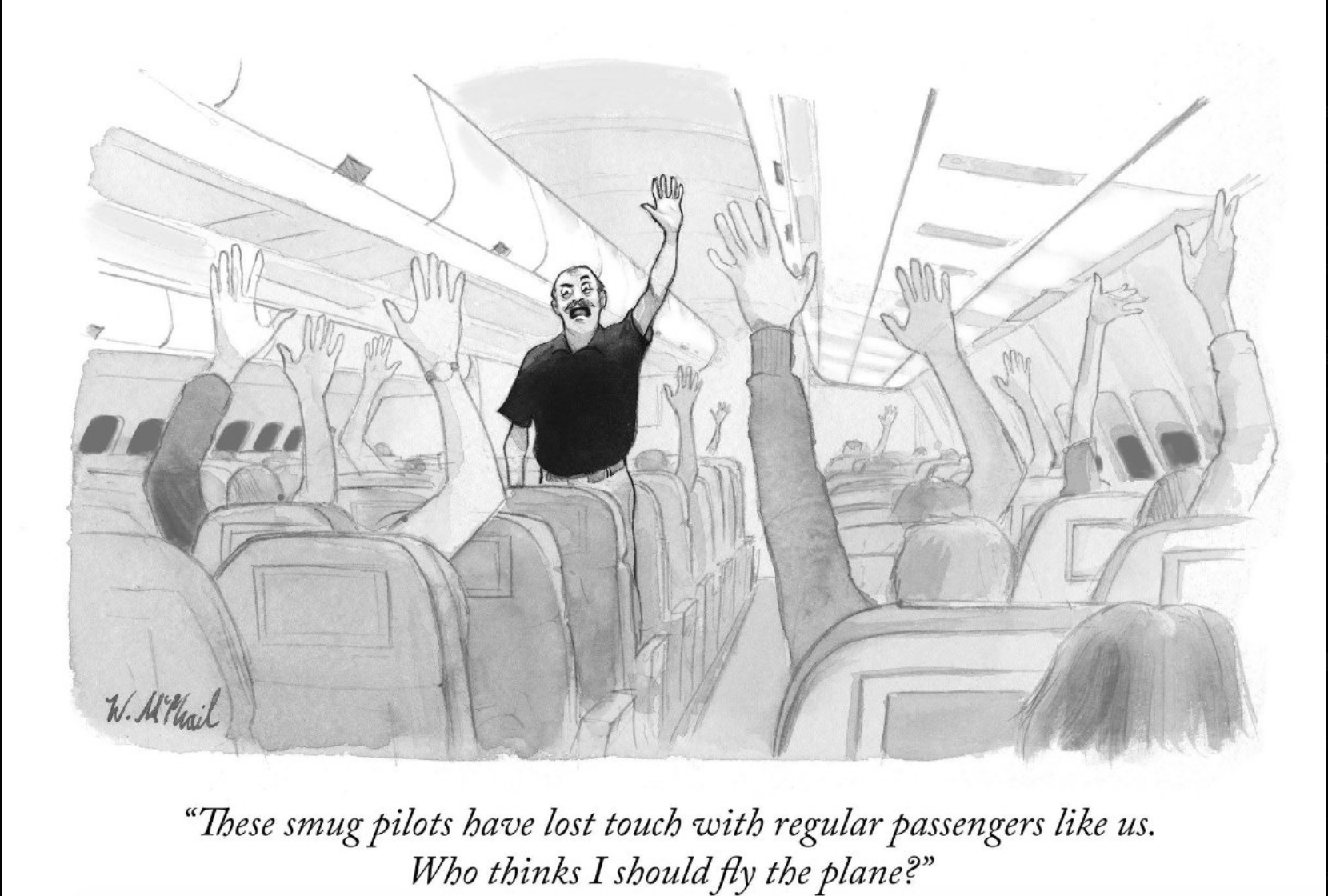
The above meme has been widely circulated, to the approval of people who think it’s an unanswerable response to those who question the unthinking acceptance of everything asserted by authorities and ‘experts’. But I think it both reflects and encourages confused thinking. Several points:
First, the pilot does not choose your destination. You do that yourself…if you are an airline passenger, by choosing the airline and the flight, if you’re going by charter or are the airplane owner, by telling the pilot directly where you want to go. But in neither case will you hear the pilot say, “Hey, you guys are kind of out of shape; forget Florida, we’re going to Minnesota for cross-country skiing and ice fishing.”
Second, there is nothing in politics analogous to the training and the practical and written tests required to be certified as an Airline Transport Pilot.
Third, it was identified many years ago in the aviation world that a significant number of accidents were being caused by excessive deference to (actual or perceived) authority…for example, when a First Officer (copilot) was concerned about something, but was reluctant to bring it to the attention of the Captain. The subject of ‘Crew Resource Management’, intended to address this problem, is now part of the training of people who fly aircraft with multiple crew members. The message of CRM is the opposite of the uncritical acceptance of authority that the circulators of this meme seem to be advocating.
Fourth, although the pilot in command is responsible for and is the final authority as to the operation of that aircraft, he is also responsible for gathering information from multiple sources relevant to the safe conduct of the flight: weather information, fuel calculations, airspace restrictions, mechanical condition of the aircraft, etc. He can’t just say well, the plane is in good shape and there’s plenty of fuel to get there, so let’s go. Compare and contrast with the politician who in making a ‘lockdown’ decision chooses to rely only on the opinions of virologists and epidemiologists, while ignoring any information about the effects on schoolchildren and small businesses.
What else?